through 5 years*
COMMENCE aortic clinical trial
Clinically stable hemodynamics and zero structural valve deterioration (SVD) through 5 years (in 689 patients)
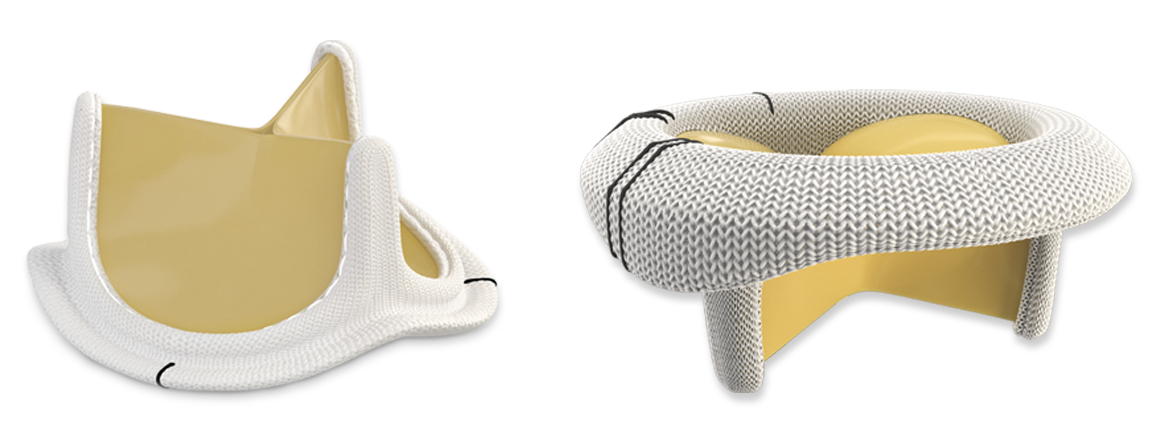

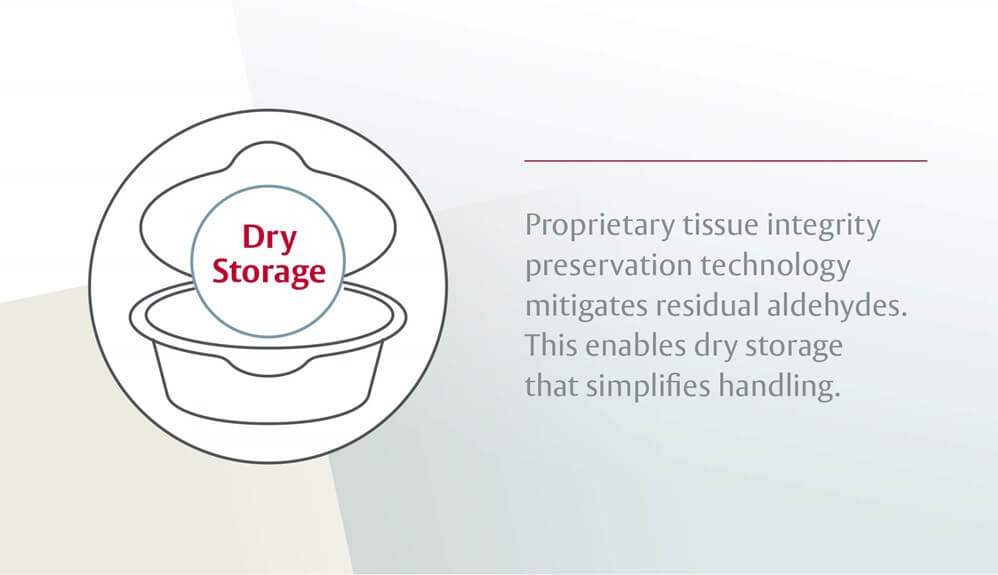
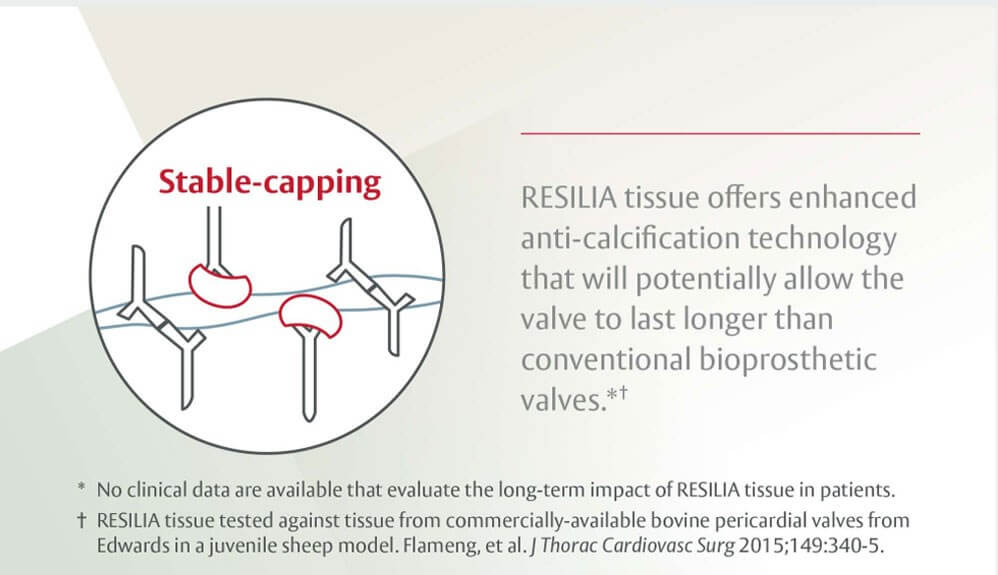
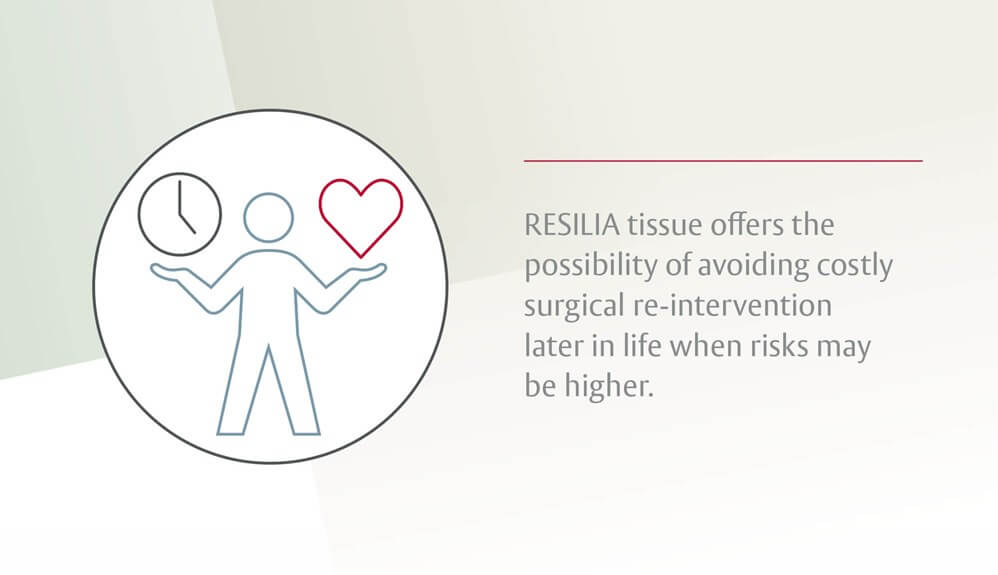



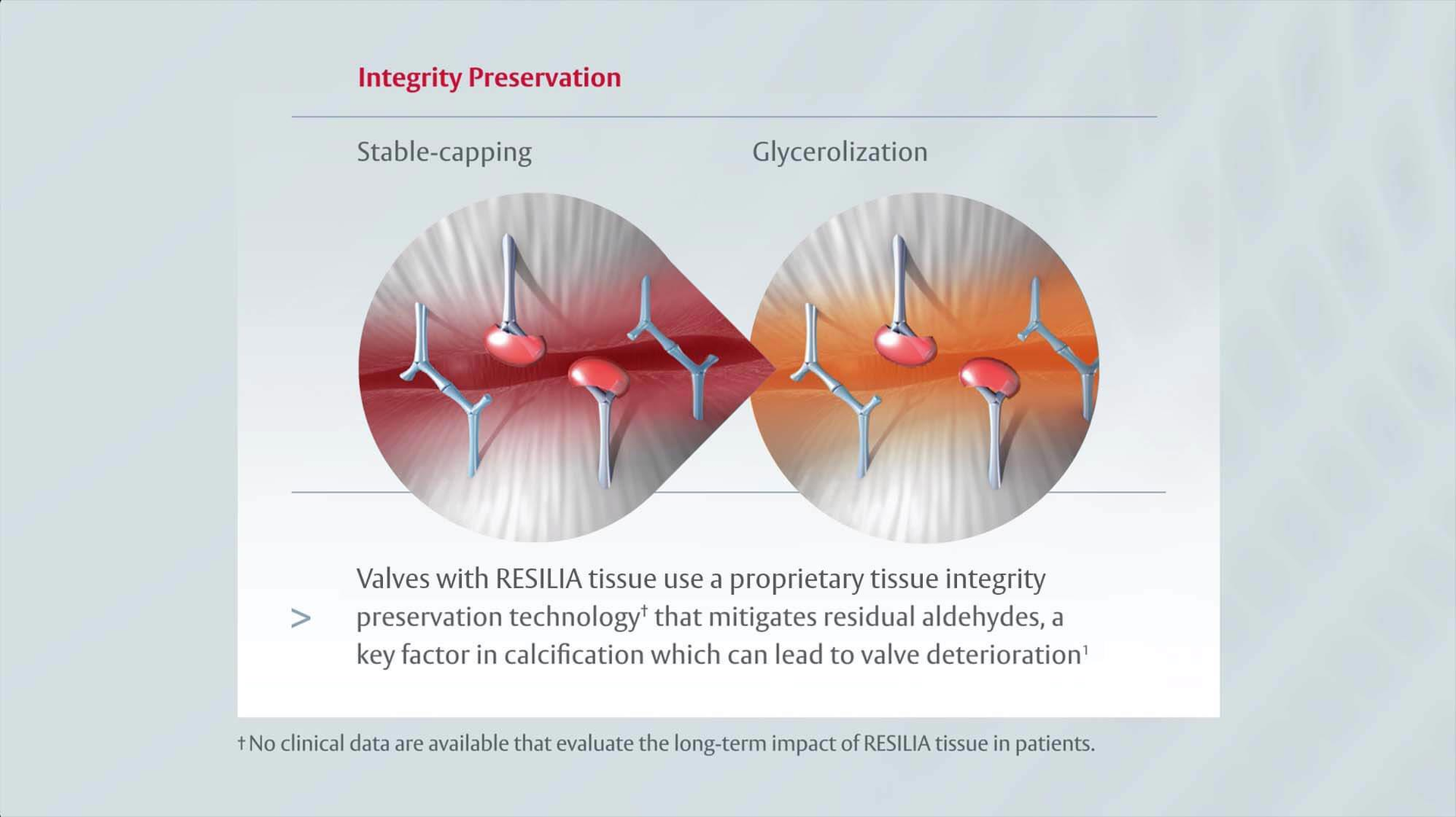

A key challenge with pericardial tissue is structural valve deterioration (SVD), much of which is due to calcium buildup. RESILIA tissue is transformed to resist calcification differently.
For more clinical information on the performance of RESILIA tissue, visit the Inspiring Results page.
COMMENCE aortic clinical trial
Clinically stable hemodynamics and zero structural valve deterioration (SVD) through 5 years (in 689 patients)
Preclinical juvenile sheep model study
Significant improvement of anti-calcification properties in test valves compared to control.1
* 1 SVD diagnosed at post-operative day 1848.
** RESILIA tissue tested against tissue from commercially available bovine pericardial valves from Edwards in a juvenile sheep model. Flameng, et al.J Thorac Cardiovasc Surg 2015;149:340-5
Clinically stable hemodynamics and one incidence of structural valve deterioration (SVD) through 4 years in 82 patients.
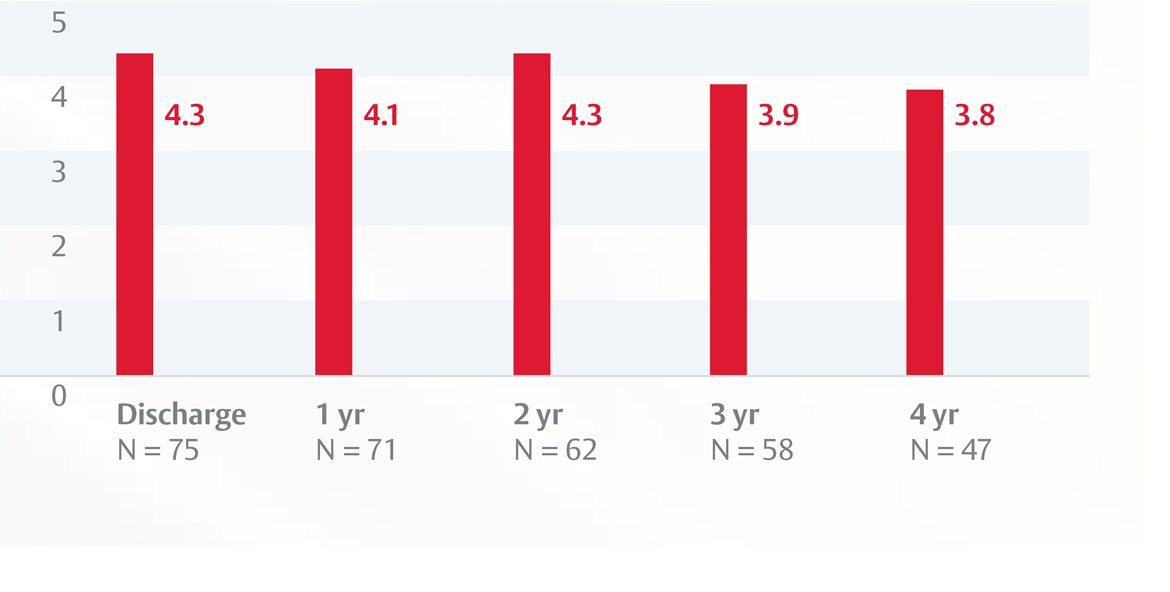
For patients referred for surgical valve replacement, there are now three options: mechanical valves, conventional tissue valves or RESILIA tissue valves. RESILIA tissue gives surgeons the freedom to offer a resilient tissue alternative that brings the quality-of-life benefits of tissue valves to patients.
With RESILIA tissue, patients and surgeons alike gain the freedom that comes with peace of mind. It’s knowing that Edwards Lifesciences has a proven commitment to ongoing innovation in surgical structural heart solutions, to advance the state of the art and put better outcomes within reach.
Today’s RESILIA tissue portfolio is the culmination of years of careful, deliberate development in collaboration with cardiac surgeons, innovating while building on proven technology.
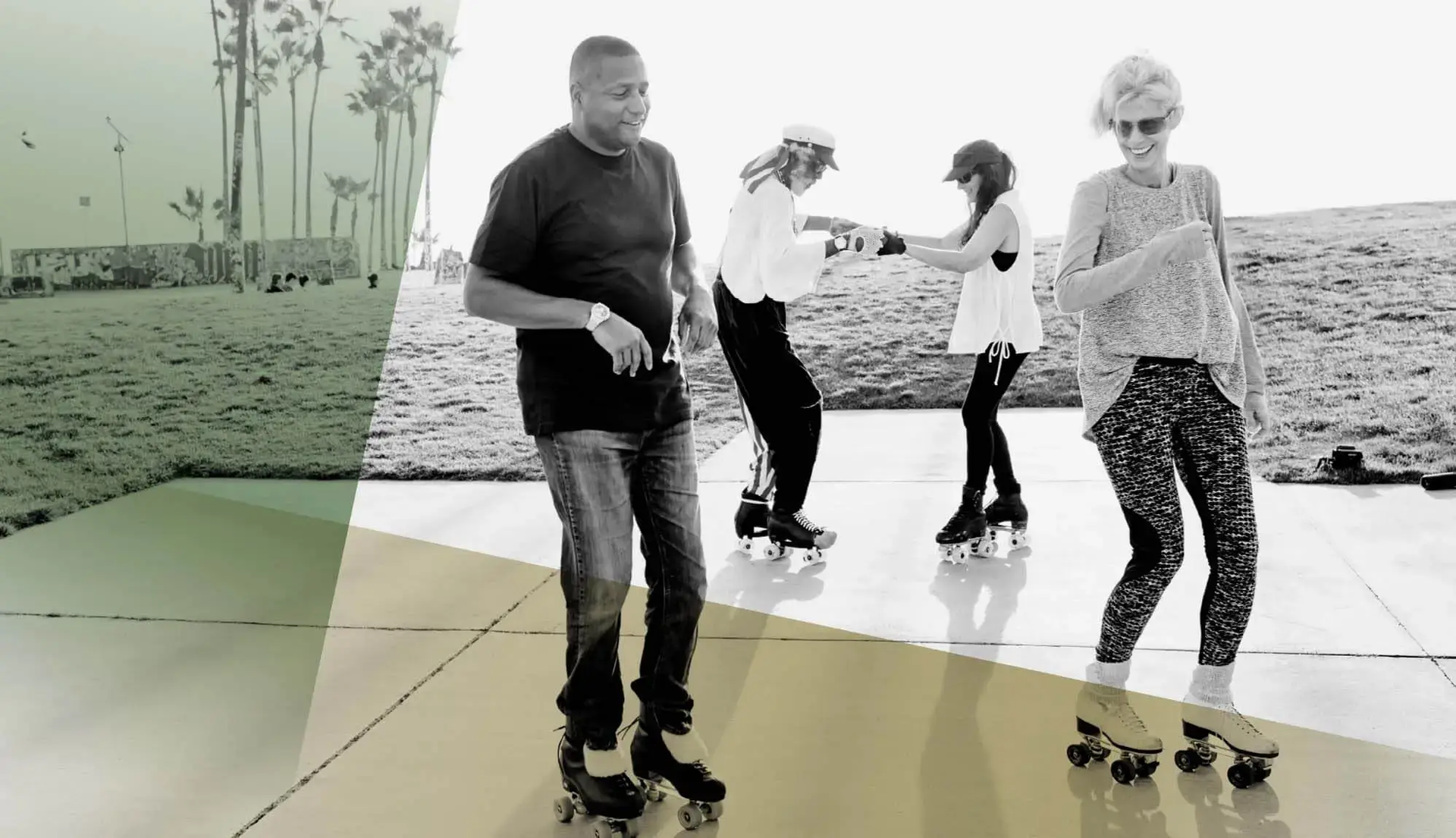
Explore our current RESILIA tissue products